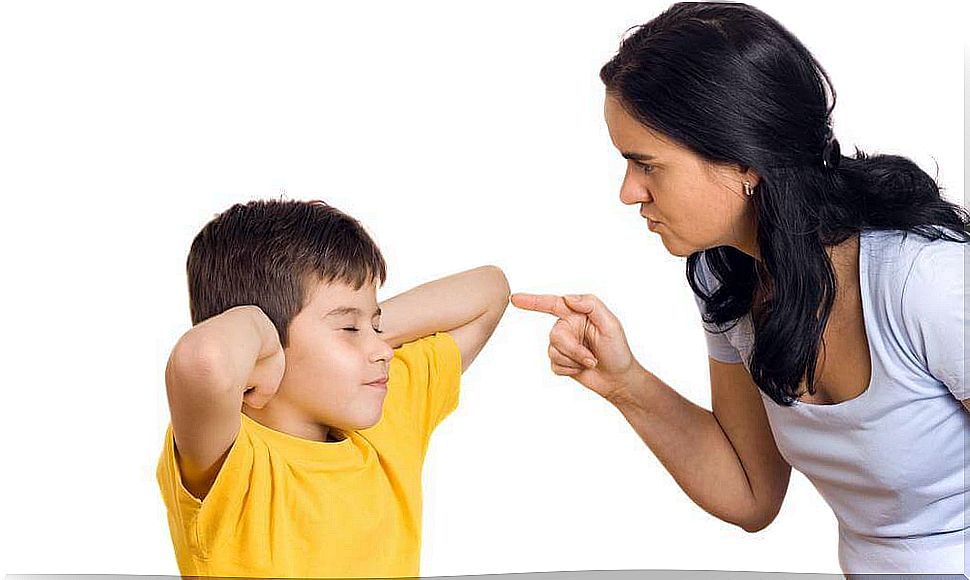5 Sentences Not Allowed In Good Manners

Educating is not an easy task. It requires numerous qualities (patience, love, tenacity, time, etc) and its fruits are often seen in the long term. Furthermore, educating is a much broader act than is usually understood: they do not only educate parents, grandparents or uncles; it is a more global act. For example, when we walk down the street and throw a piece of paper on the ground or in the dustbin, we indicate to those around us (and observe us) what we consider correct.
Adults are usually less sensitive to being polite, as they have seen people react differently to the same situation. An individual example, therefore, will affect them much less. However, with children and adolescents this does not happen and we must not forget that they are everywhere.
In the field of education there are several issues that may seem obvious or common sense and which in our imagination are classified as positive. However, they may not be when one considers the child’s mental or psychological health.
Below are some phrases that, according to experts, you should never say to your children:
1- “Very well”: here lies the first dilemma; Why can’t I compliment my son when he gets a good grade or when he is the best in his favorite sport? Attention! This is not what it is about, it is good to clarify it. Psychologists say that one must always be balanced. It is not fair to “applaud” anything done by one’s children, as well as never to praise them. Another issue to take into account is the phrase you use. “Well done my son”, “My very good daughter”, “Keep it up, little one”, are not good, because they are too generic. Always better clarify why we are congratulating them. “Your math grades are getting higher”, “I’m happy with the goals you scored in the last game”, etc.
2- “I’m busy”: unfortunately this is a phrase that is repeated a lot in today’s families. If the child hears her too many times a week and in her life, she will think and feel that she is not important to her parents. Of course everyone has commitments and a thousand things to do, but children must always be among their priorities. If you don’t work, you can’t give them what they need, but remembering your parents all day at work isn’t good. Furthermore, as mentioned in the previous point, do not pronounce the generic “I am busy”, but explain why you are, so that the child can understand why the mother and / or father cannot be with him at that moment.
3- “You’ll see when your father (or your mother) arrives: if the other parent presents himself as an example of punishment, he will always play the part of the villain. It is true that in a couple usually one of the two is more dominant and severe, but this does not mean that he has to become the ogre of the story. The child will feel fear of this person who will arrive and will experience a feeling of insecurity in seeing them enter the door. The best thing is that the parent present at the moment takes responsibility for the punishment the child deserves. Talk to your partner to determine the limits.
4- “Don’t cry, nothing happened” : crying is a form of communication typical of children up to a certain age. The parents’ task is to help them express themselves in another way, so that they explain what happened and, above all, so that they learn to deal with what happened. Saying “everything is fine” or “it’s over now” is not the right solution.
5- “Now …”: you can complete with any threat, from a “I’ll take off your phone” to a “I’ll slap you”. If you threaten your children with only phrases, the children will understand that they are just simple “warnings” that do not come true in practice. You will only instill fear in them and deprive them of the ability to understand.









